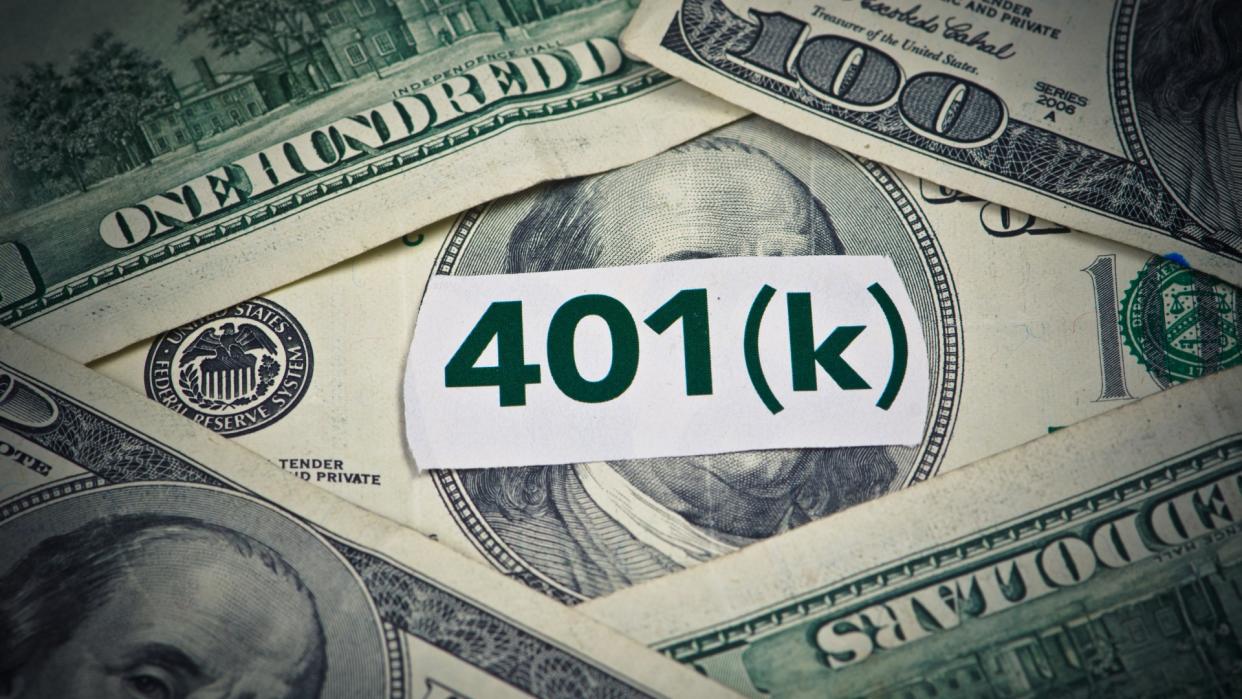What To Do If You Overcontributed to Your 401(k)

When creating a retirement plan, you may have decided to max out your 401(k) contributions yearly to ensure that you have sufficient funds to maintain your lifestyle in your golden years. While it makes sense to max out your contributions, it’s possible that you could’ve gotten carried away and allocated more than allowed.
If you overcontribute to your employer’s 401(k), you can create issues with your tax return and get stuck dealing with additional taxes, penalty taxes and possibly double taxation.
We will explore how people might end up overcontributing to a 401(k) plan and what to do if that happens.
Check Out: How Much Money You Should Have in Your 401(k), According To Expert Humphrey Yang
See More: One Smart Way To Grow Your Retirement Savings in 2024
How Can You Overcontribute to a 401(k)?
How’s it even possible to overcontribute? Here are a few likely scenarios:
You have multiple sources of retirement savings and aren’t monitoring your 401(k) contributions closely.
You work multiple jobs or have switched jobs during the year.
Your income increases due to a raise or bonus, and you forget that your 401(k) is a percentage of how much you earn.
It’s worth mentioning that the 401(k) limit for 2024 is $23,000, up from $22,500 in 2023. You want to stay under these limits to prevent tax issues in the future.
Try This: How To Retire on $2,000 a Month: A Frugal Living Guide
What Should You Do If You Overcontribute?
What should you do if you overcontribute to your 401(k)?
Contact Your Employer or Plan Administrator Promptly
“First of all, you’ll want to reach out to your employer,” said Erika Kullberg, an attorney, personal finance expert and founder of Erika.com.
You want to inform your plan administration that you’ve made an “excess deferral” by adding too much to your 401(k).
“Your employer should be able to support you on next steps,” Kullberg said. “Getting the overcontribution corrected before the next tax year ends is crucial to avoiding higher taxes and penalties. Once your employer or plan administrator has been notified, they can help you get started on minimizing the damage.”
Get a New W-2 and Deal With the Taxes
“The next step is completing an amended W-2 form from your employer,” Kullberg said. “This will show an increase in taxable wages equal to the amount you overcontributed. You’ll then report that number to the IRS on your form 1040 for the year of the corrected W-2.”
This next step will depend on when you catch your mistake. Here are the possible scenarios:
You or your employer catch the mistake before the year ends. Your employer must add your contribution amount to your wages on your W-2. You want to ensure that the W-2 and any 1099-R forms you get from your employer are accurate before filing your taxes.
If you catch the mistake before tax day, your employer can issue a corrected W-2. The funds earned from your contribution will be reported on a 1099-R for the current year.
If you missed the tax day, you should immediately inform your administrator and withdraw the excess contributions and any earnings. You will then be issued a 1099-R for the excess deduction in the year it happened. You’ll have to file a new tax return and deal with any taxes. You could also pay taxes on the withdrawal for the year you take it out, and there may be a 10% early withdrawal penalty.
Manage Excess Earnings
It’s important to note that any income earned from the overcontributed amount will count toward your tax bill. You’ll have to manage these excess earnings to prevent further tax problems.
“If you don’t catch your mistake in time before the next tax period comes around, you’ll have to follow the same process, but you’ll be taxed on it twice — once in the year you ‘earned’ it, and then again in the year you corrected the overcontribution,” Kullberg said. “That’s why it’s crucial to catch it in the same tax year.”
Closing Thoughts
“It’s easy to feel a bit foolish here, but this is a really common mistake and you can be sure your employer has dealt with this problem before,” Kullberg said. “So don’t let your emotions hold you back — acting quickly is important in order to avoid being taxed double on your overcontribution.”
If you overcontribute to your 401(k), you should resolve the situation immediately by contacting your employer. The sooner you can correct the excess contribution and earnings, the better your chances are of minimizing your damages.
As crucial as it is to contribute to your employer’s retirement plan, you don’t want to go over the limit. You’ll want to track your contributions to ensure this doesn’t happen again.
More From GOBankingRates
Suze Orman: 5 Social Security Facts Every Soon-To-Be Retiree Must Know
Avoid These 7 Cars That Will Only Last You Half as Long as the Average Vehicle
The Biggest Mistake People Make With Their Tax Refund -- And How to Avoid It
This article originally appeared on GOBankingRates.com: What To Do If You Overcontributed to Your 401(k)
